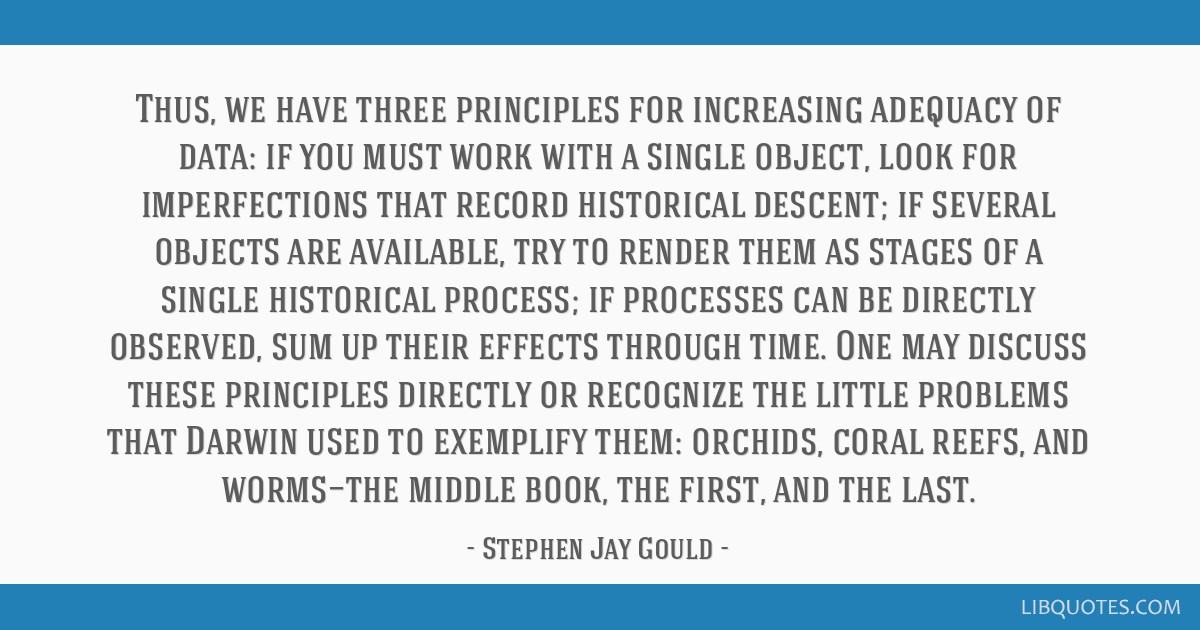Thus, we have three principles for increasing adequacy of data: if you must work with a single object, look for imperfections that record historical descent; if several objects are available, try to render them as stages of a single historical process; if processes can be directly observed, sum up their effects through time. One may discuss these principles directly or recognize the little problems that Darwin used to exemplify them: orchids, coral reefs, and worms—the middle book, the first, and the last.
"Worm for a Century, and All Seasons", p. 132 - Hen's Teeth and Horse's Toes (1983)























